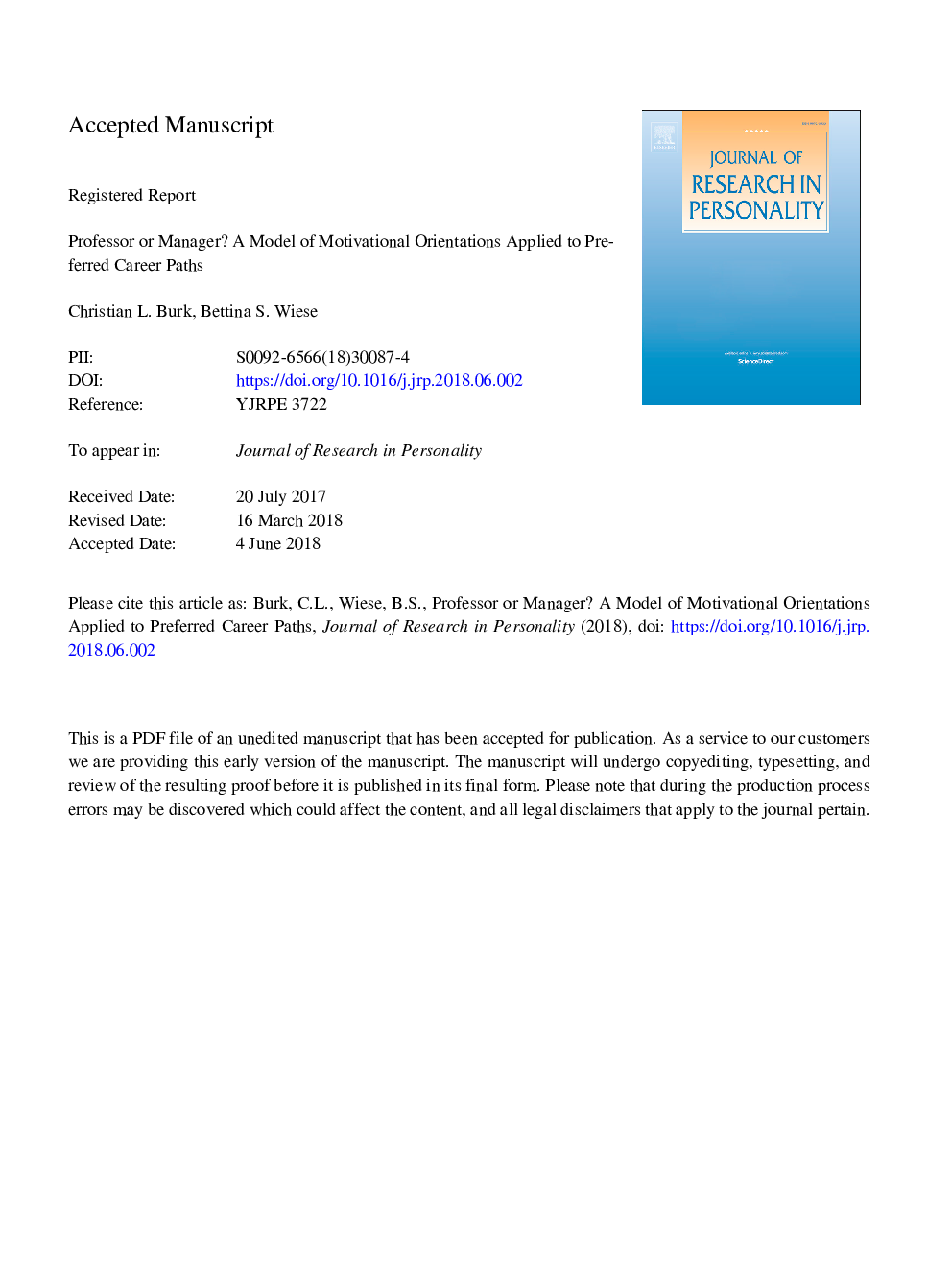| Article ID | Journal | Published Year | Pages | File Type |
|---|---|---|---|---|
| 7326316 | Journal of Research in Personality | 2018 | 60 Pages |
Abstract
Integrating Deci and Ryan's self-determination theory, McClelland's acquired needs theory, and more fine-grained indicators of work-related tasks, we (a) investigated the possible co-existence of global and specific motivational factors based on a new instrument and (b) used them to predict the goals of becoming a professor or a manager. We collected data from more than 3000 doctoral students and doctorate holders from the STEM fields at five measurement points. Bifactor exploratory structural equation modeling confirmed a hierarchical taxonomy. Both career goals were predicted by global and specific motives. Strong needs for power, income and leadership predicted aspirations to a management career. Motivational factors predicting the professorship goal were strong needs for competence, autonomy, and creativity, and low interest in income.
Keywords
Related Topics
Life Sciences
Neuroscience
Behavioral Neuroscience
Authors
Christian L. Burk, Bettina S. Wiese,
